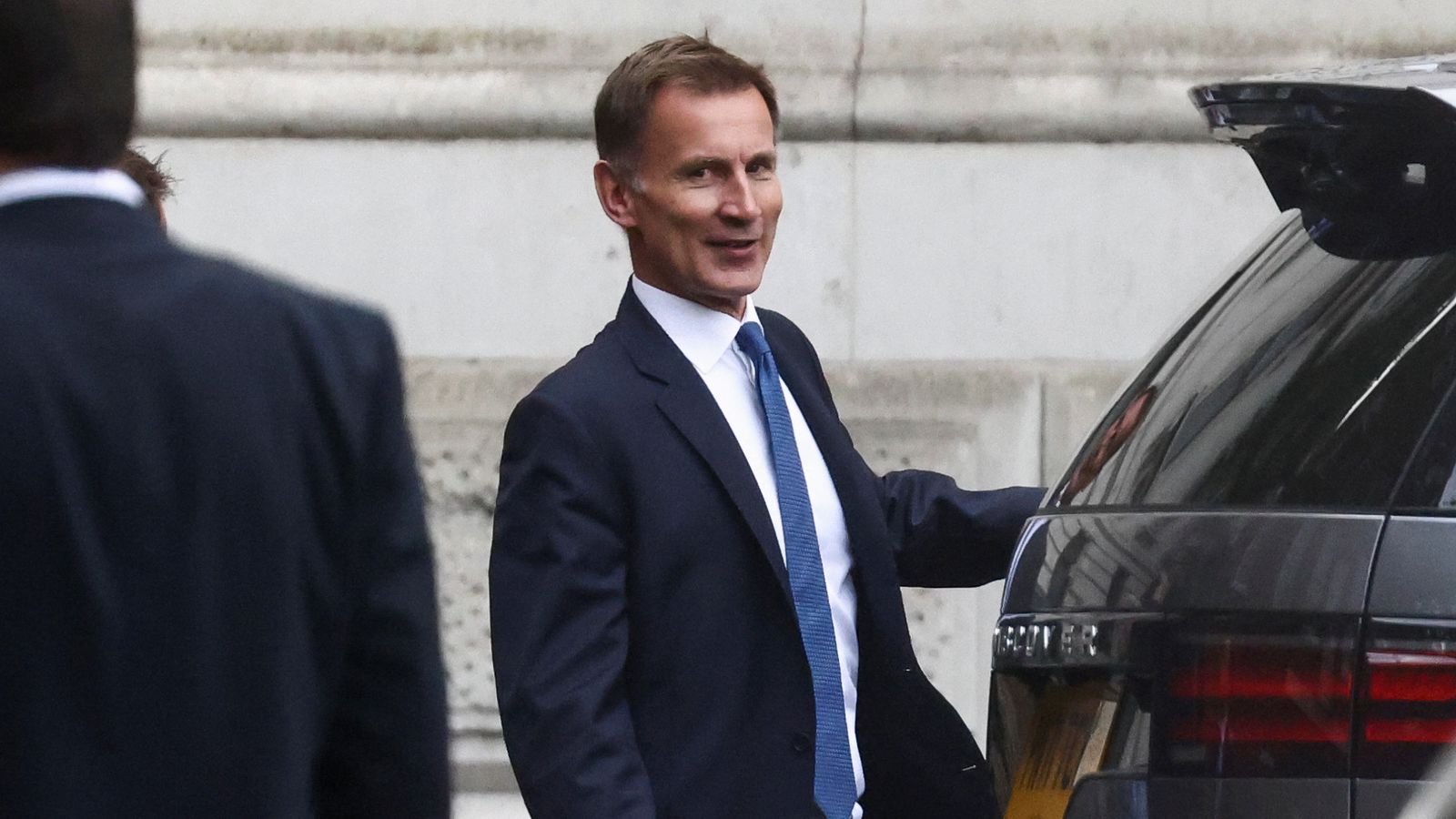Nearly all the tax cuts announced in the government’s mini-budget are being reversed – here are seven things you need to know about the U-turn.
1. Let’s start with the fact that actually it wasn’t just a U-turn. It was more.
Not only did it reverse the majority of policies in the mini-budget, it went further, reversing a Sunak-era plan to cut the basic rate of income tax.
2. That this happened so quickly, and with more than half an eye towards markets, is symptomatic of a far bigger deal.
Government policy is being dictated not by the Tory party or parliament but by financial markets. I can’t remember another occasion we’ve had that since Black Wednesday in 1992.
3. And markets were able to dictate policy because there is still clear and present danger out there.
As I reported earlier, there is at least one fund, in one asset manager which was close to the brink this morning. A further rise in yields would have tipped it over.
Jeremy Hunt reverses ‘almost all’ tax cuts in mini-budget and says energy bills support scheme to be scaled back
Chancellor to reveal parts of his medium-term fiscal plan today, Treasury says
Chancellor’s cull of more mini-budget giveaways eases financial market pressures
4. The good news is today’s measures really do seem to have injected some confidence back into markets. Gilt yields are now down markedly.
That, in turn, is pushing down expectations for Bank of England rates, which in turn will likely push down fixed rate mortgages. Quite a relief for everyone.
5. When it comes to calming financial markets, this was comfortably the most successful intervention from the government since Liz Truss became PM. Yet she is nowhere to be seen.
The intervention came from an outsider; striking but consistent with this being a credibility crisis.
6. The most game-changing of all the measures wasn’t even costed today.
Changing the energy price guarantee from a two-year policy to a six-month policy will potentially save tens of billions. Maybe even £100bn plus, but there’s no way of knowing because it depends on future gas prices.
7. Crucially, even though today’s measures went further than most people expected, there is still a sizeable shortfall.
If Jeremy Hunt wants to get the national debt falling, he’ll need to find another £30-40bn of spending cuts and/or tax rises, so there’s more to come.








